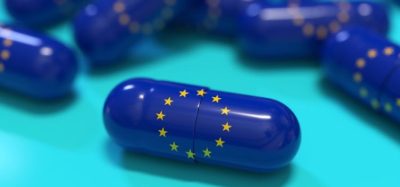On the new EU MDR guidance for “significant change” and clinical evidence for software
Posted: 6 April 2020 | Antoine Robin (Sidley Austin), Josefine Sommer (Sidley Austin), Maurits Lugard (Sidley Austin) | No comments yet
Maurits Lugard, Josefine Sommer and Antoine Robin from Sidley Austin dissect the recently released EU guidance to accompany the MDR, on what a significant change is and how to collect clinical evidence for medical device software.


The EU Medical Devices Regulation (MDR) will apply in little more than two months, under highly unusual circumstances. The COVID-19 global health crisis is now putting additional strain on the already overburdened medtech industry and tensions around the revision of the Swiss-EU mutual recognition agreement are adding to the pressure. However, some positive news for the pharma industry is that the Medical Device Coordination Group’s (MDCG) has released much-needed guidance on a number of key topics that will assist the industry in its efforts to comply with the MDR, as well as the EU In Vitro Diagnostic Medical Devices Regulation (IVDR).
Guidance to determine what is a “significant change” in design and intended purpose of medical devices


The MDCG has published guidance on what constitutes a significant change under Article 120(3) of the MDR with regards to devices covered by certificates issued under the MDD or AIMDD.
Flowcharts are included and are largely based on the Notified Body Operations Group’s previous guidance. These flowcharts provide a roadmap of various assessment steps, which can be taken to reach a particular result – according to which a change should be deemed “significant” or not. A separate flowchart is provided for each of the following changes:
- changes in intended purpose, noting that changes other than a limitation of the intended purpose will nearly always be considered significant
- changes in the design or performance of the specification, noting that certain changes in the design related to corrective actions may be deemed not significant
- software changes, as further detailed below
- changes of a material
- changes of terminal sterilisation methodof the device or changes to the packaging design affecting the sterilisation.
Software changes that will generally not be considered significant include the correction of an error that does not pose a safety risk (eg, bug fixes), security updates (eg, cybersecurity enhancements), appearance of the user interface, operating efficiencies and enhancement of the user interface without influencing the performance, as well as certain other aspects.


What and how much clinical evidence do manufacturers of medical devices need to justify conformity of MDSW?
This guidance is still subject to revision but it provides important guidance for medtech companies trying to collect clinical evidence for their medical device software (MDSW).
The following principles aim to guide industry in the generation of such evidence:
- Manufacturers must verify that the information generated by the MDSW relates to the targeted condition indicated in the relevant device’s intended purpose. This can be, for example, on the basis of literature searches, professional guidelines, proof-of-concept studies or the manufacturer’s own studies.
- Manufacturers must also verify that the MDSW reliably, accurately and consistently meets the intended purpose in real-world usage. This can be demonstrated through validation and verification studies – for instance, unit-level, integration and system testing or by generating new evidence through use of curated databases, curated registries, reference databases or previously collected patient data.
- Manufacturers must demonstrate that the MDSW has been tested for the intended use, target population, use conditions, operating and use environments and all with intended user groups.
The guidance also provides useful indications on the level of clinical evidence that Notified Bodies will expect (quantitatively and qualitatively) from manufacturers of MDSW. An annex contains practical examples of evaluation strategies for specific MDSW.
How can manufacturers of some Class I medical devices make efficient use of the transitional provisions in Article 120(3) and (4) of the MDR?
As reported in Sidley’s updates last December, the EU legislator adopted, in a second corrigendum to the MDR, a four-year transition period for certain low-risk medical devices.
The guidance clarifies the conditions that manufacturers must fulfil in order to continue to place Class I medical devices certified under the current regime on the EU market until 26 May 2024. The guidance further provides clarifications of the information that manufacturers of such devices must provide in a valid Declaration of Conformity.
Along with the documents outlined above, the MDGC also issued:
- guidance on Unique Device Identification
- guidance on implant cards to be provided to patients pursuant to Article 18 of the MDR.
About the authors






Related topics
Industry Insight, Informatics, Medical Devices, QA/QC, Regulation & Legislation









